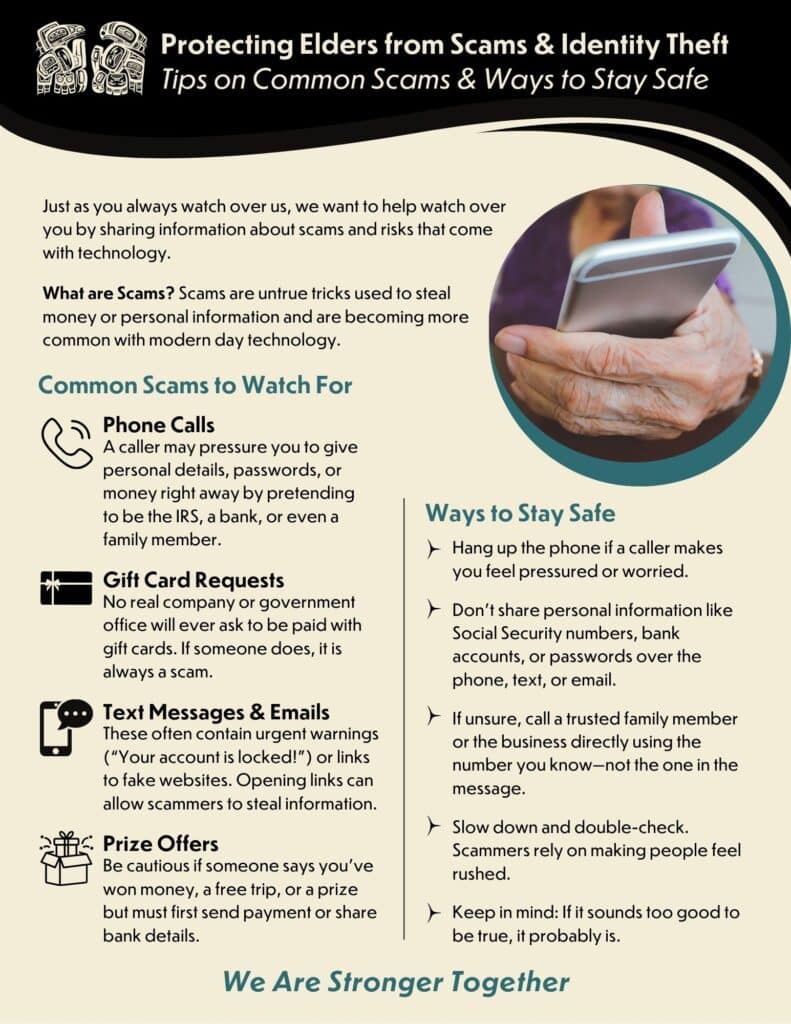As the world becomes more digital, there are new ways others may try to take advantage of that trust. Criminals increasingly target Elders with scams and identity theft, often using fear, confusion, or manipulation to gain access to personal information or finances.
You deserve to be safe not just in your home, but also on the phone, online, and through the postal mail you receive.

What You Should Know
Scams and identity theft are becoming more common. In 2024, over 88,000 people aged 60 and older reported being targeted by scammers. Together, they lost more than $3.4 billion.
The most common scams to watch out for include:
- Government impersonators (pretending to be from the IRS or Social Security)
- Tech support scams (claiming your computer has a virus)
- Sweepstakes or prize scams (saying you’ve won money — but asking you to send some first)
- Romance scams (building emotional trust, then asking for money)
You Have the Right to Say No
If you’ve been contacted by someone and it seems suspicious, you have every right to:
- Hang up on a suspicious call
- Ignore messages or emails from people you don’t know
These actions are not rude — they are strong. And they protect not only you, but your whole family.
Tips to Keep You Safe
- Talk Story, Talk Safety: If someone contacts you and you’re unsure, talk to a family member or someone you trust. You’re never alone.
- Be Careful with Personal Information: Never share your Social Security number, Medicare number, or bank information with anyone over the phone unless you are absolutely sure who they are.
- It’s Okay to Hang Up: Real government agencies will not threaten you or ask for money over the phone. If someone does, hang up and report it.
- Let Family Help with Technology: Ask a trusted family member to help set strong passwords or check if a message or website is safe.
- Stay Connected: Scammers often try to reach people who may feel alone. Staying connected with family, friends, and your community helps keep you safe and strong.
What To Do If You Suspect a Scam
If you think you’ve been targeted:
- Tell someone you trust
- Report through the State of Alaska’s Office of Elder Fraud & Assistance
- Report online with the Alaska State Troopers
- Report online with the Federal Trade Commission
To learn more about Elder Scam and Fraud Protection, visit the National Council on Aging.
